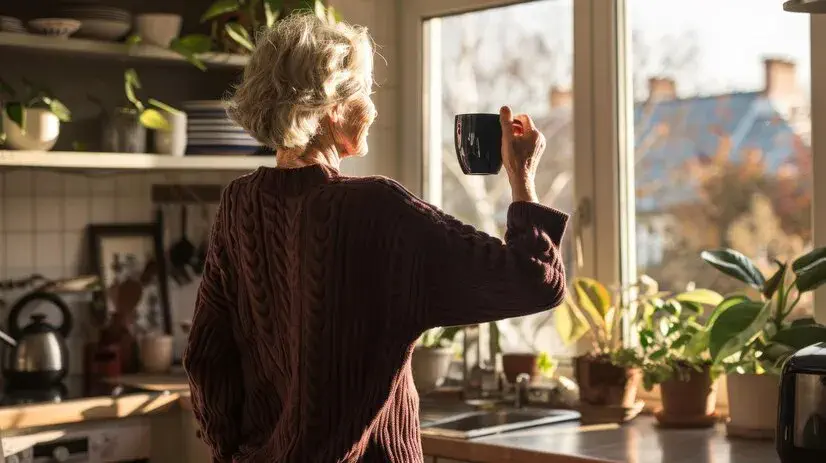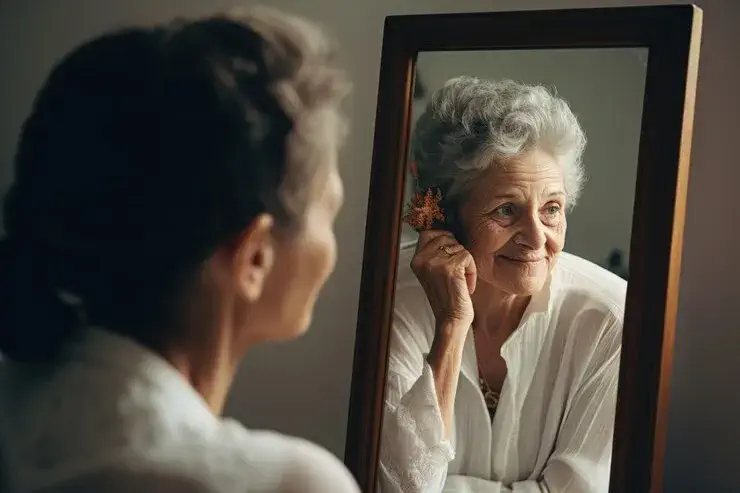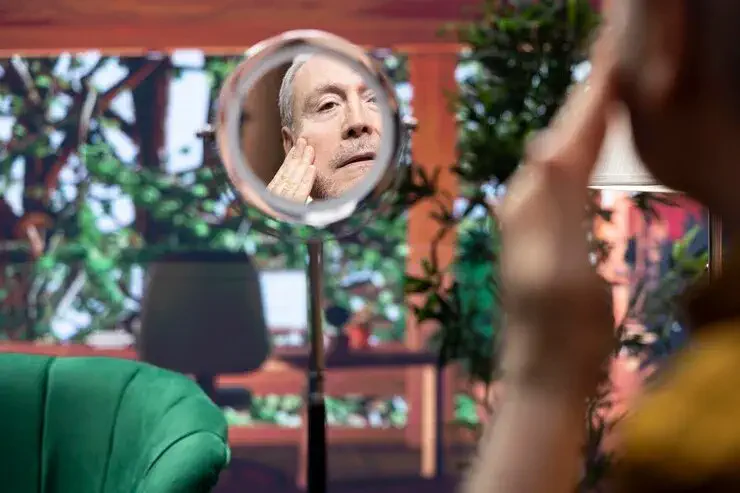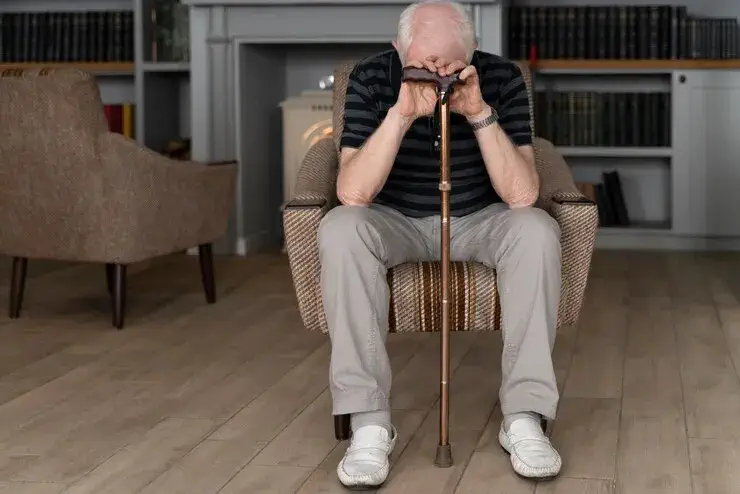
Useful Activities to Strengthen Self-Esteem in Older Adults
Self-esteem in older adults certainly has positive effects on various aspects of their lives, such as mental and physical health, social health, independence, and quality of life. Self-esteem or self-esteem means the feeling that a person has about his/her abilities. This inner feeling can have a great impact on a person’s life and help them achieve their goals with more motivation and self-confidence.
Low self-esteem in the elderly can occur for a variety of reasons, including health problems, loneliness and isolation, a decreased sense of usefulness, fears and worries, and the death of loved ones. There are many useful activities to boost self-esteem that can help a person feel better about themselves. For example, exercise and physical activity, learning new skills, volunteering, and spending time with loved ones can all have a great impact on boosting self-esteem.
In this article from the Human Health Mag website, we have highlighted important points about recognizing this feeling and the factors that cause low self-esteem in older adults. We have also explained useful strategies and activities, as well as the role of families in this regard.
What Is Self-Esteem and Why Is It So Important?
Self-esteem means having a belief and feeling about oneself, how much a person respects and appreciates himself/herself, or in other words, loves himself/herself. How a person views themselves and what they think about themselves. And perhaps it can be said in one sentence that self-esteem is a value that each of us places on ourselves. Valid scientific data shows that high and, of course, stable self-esteem is directly related to the mental and physical health of individuals.
A person with high self-esteem experiences more appropriate interpersonal relationships, greater success and job satisfaction, health, and in short, a higher quality of life. On the other hand, low self-esteem in individuals can lead to greater sensitivity to the behavior of others and make the person more inclined to withdraw and isolate. Decreased social relationships and intimacy with other people can pave the way for greater isolation and staying away from support and emotional relationships.

Maintaining and improving the level of self-esteem among older adults is also very important. Aging can lead to problems and limitations in individuals and deprive them of the opportunity to be able to handle their daily tasks and responsibilities alone and as before. Isolation and loneliness in elderly bother them, because due to leaving the workplace and professional life, lose their social and economic status and struggling with financial issues.
They have lost their power, management, and control over their surroundings compared to the past, or they experience them at much lower levels. Since depression and suicide are one of the most common psychological problems among the elderly, it should be kept in mind that strategies to promote and maintain self-esteem in older adults can also play a fundamental role in elderly suicide prevention and reducing depression in individuals.
How Improve Self-Esteem in Seniors
Elderly people have often retired, have left their workplace, physical problems have caused them limitations, or families have limited them, perhaps out of interest and concern. All of this causes the individual to stay away from the social environment and its activities. This can directly or indirectly lower the level of self-esteem in the individual.
Therefore, it seems necessary for the family to help the elderly to return to the community and its activities. This does not necessarily mean working in old age, getting a job or returning to professional life. Rather, while considering the elderly’s capabilities, one can go for those social activities that satisfy the person and can start and complete projects. To strengthen self-esteem in older adults, useful activities can be used, depending on the physical and mental conditions of the elderly, as well as their level of interest and talent, including:
Social Activities
Participation in social groups such as sports clubs, art groups or study groups makes the elderly feel more connected and connected to others. Also, participating in volunteer activities and helping others can strengthen the sense of usefulness and value in the elderly. Participating in recreational activities and religious ceremonies, spirituality in the elderly and other related activities also makes the elderly feel more relaxed and cheerful.
Although older people may not be able to leave the house alone, it should be noted that the more the elderly have faith in their abilities and access, the more they can remain involved in the social environment. For example, elderly people who can walk on the sidewalk or go to the park have a better chance of physical and mental health. So, instead of restricting the elderly, it is better to make the environment safer and try to find activities that the person can engage in with high safety.
Artistic Activities
There are many artistic activities such as painting, music, gardening and writing that can significantly help increase the self-esteem in older adults. These activities help these people express their feelings and showcase their creativity. Doing such things has a positive effect on morale and self-esteem and helps the person to better understand and regulate their feelings and thoughts.

Learning New Skills
Seniors should be reminded that it is never too late to learn different skills. Learning some skills both enhances a sense of achievement and self-efficacy, and helps a person feel more valuable. For example, participating in in-person or online classes to learn various skills, such as learning a new language, can help a person feel more successful and satisfied. Also, reading books and articles related to new skills can help them increase their knowledge and feel that they are progressing.
Physical Activity
Seniors exercise releases endorphins, which can improve mood and increase resilience. A daily walk can also help calm the mind and feel better about yourself. Other activities such as yoga, meditation and pilates for the elderly also help reduce stress and increase self-awareness, which can lead to stronger self-esteem. It is better to do such activities in a group with your peers.
Spending Time with Loved Ones
Recreation and entertainment are essential for people of all ages. Although some limitations in old age may prevent a person from being able to go out and have fun alone, it is the main duty of caregivers and family members to provide conditions for the elderly to engage in their favorite pastimes, listen to music, or go to the park as much as possible.
Spending time with loved ones is one of the positive things that can strengthen the resilience of the elderly. Spending time with people who love and support the elderly can strengthen their sense of worth and self-confidence. Being with loved ones helps reduce stress and anxiety, which in turn leads to improved self-esteem in older adults.
Also, having strong and positive relationships with others can increase the sense of belonging and social connection, which in turn will strengthen self-esteem. Those around the elderly can encourage and motivate them to achieve their goals and believe in their abilities.
Attention to Appearance, Nutrition, and Personal Hygiene in the Elderly
Attention to appearance is one of the things that is effective in strengthening the spirit and sense of self-esteem of the elderly. Taking care of yourself and having a healthy diet not only helps improve your physical appearance, but also makes you feel better about yourself. Choosing clothes that make the elderly feel comfortable and confident can have a positive effect on their self-esteem. Also, observing personal hygiene and having proper hygiene habits also makes you feel clean and fresh, which is also effective in increasing self-esteem in elderly.
Maintaining the Independence of the Elderly
We all yearn to maintain our independence since childhood. It is important for all of us that our autonomy is maintained and that our decisions are respected and valued. The elderly are no exception to this. The elderly may lose their independence to some extent due to physical, psychological changes, and of course, under the influence of social attitudes. This will play a significant role in reducing self-esteem among them.
Therefore, it is necessary to choose behaviors that cause the least damage to the independence of the elderly. For example, as much as possible, the opportunity to choose and make decisions is the responsibility of the elderly.
In fact, instead of making decisions directly for them, we should try to put different options and choices in front of them. It is not necessary to make big and vital decisions, as long as the elderly choose their clothes or are allowed to determine the time of their meals or medicine during a period of time when their health is not at risk, it can be effective in maintaining their independence.
The Role of Family and Caregivers in Strengthening Self-Esteem in Older Adults
Although many people know very well what activities they are most interested in, sometimes the occurrence of some conditions such as depression causes a person to no longer seek pleasure or even forget how they used to enjoy their life. This is also observed in the elderly. In addition to creating conditions where they can pursue their interests as much as possible, sometimes it is necessary for us to look for a pastime or hobby for them.
It is necessary for those around the elderly to actively listen to what they say, engage in effective conversations with them, and ask them questions or seek their opinions. With a baggage of different experiences, the elderly are often concerned with the belief that they are no longer useful to those around them. When they are given the opportunity to benefit from their rich store of knowledge and experience, they will feel more useful.
Consult the elderly about the problems you are struggling with. This not only helps you try new things, but it also gives the senior a sense of self-confidence and self-worth. In addition, you can ask them about their life story. This shows them that you are interested in learning more about them and that their experiences are valuable enough to take the time and energy to hear about. Of course, it should be noted that all these works are subject to the personal satisfaction and desire of the elderly.

What Causes Low Self-esteem in the Elderly?
There are many social, psychological, and physical factors that can lead to low self-esteem in the elderly. Some of these factors include:
- Decreased social connections and withdrawal from family and friends
- Increased feelings of loneliness and isolation
- Death of a spouse, close friends, or family member
- Retirement and reduced daily activities
- Changes in social roles and reduced responsibilities
- Financial problems and economic concerns
- Depression, as well as anxiety and ongoing concerns about the future and health
- Cognitive problems such as Alzheimer’s and dementia
- Alcohol or drug abuse
- Diseases such as diabetes, heart disease, and osteoarthritis and decreased physical abilities
- Mobility problems and physical disabilities, feelings of dependency, and decreased independence
- Sleep disorders and insomnia (Read home remedies for insomnia)
Concluding Remarks
Everyone needs to feel respected, valued, and self-esteem. The need for these types of feelings may be stronger in the elderly due to their special conditions. Strengthening self-esteem in older adults is important for strengthening their physical and mental health and ultimately leads to an increase in the quality of life of these people. Usually, elderly people who have higher self-esteem have better social relationships and more independence.
Using useful strategies in the field of strengthening the self-esteem of elderly people has many effects. In this article from the Human Health Mag website, we have discussed several issues such as factors that cause a decrease in self-esteem, the importance of self-esteem for the elderly, useful activities, and the role of families and caregivers in increasing self-esteem in the elderly.
If you also have experience in strengthening the self-esteem of your elderly, please share your experience with us.

Frequently Asked Questions
What factors contribute to low self-esteem in older adults?
Key factors associated with low self-esteem in the elderly include advanced age (over 70), widowhood, living with descendants, low educational attainment, retirement, loss of autonomy, health issues, and social isolation.
Why is maintaining self-esteem important for older adults?
Higher self-esteem in older adults is linked to better mental health, including lower depression and anxiety, as well as improved physical health, greater happiness, better coping strategies, and more active social participation.
What activities or interventions can help boost self-esteem in seniors?
Engaging in regular physical activity such as walking, yoga, and aerobic exercises, fostering strong social bonds, practicing good personal hygiene, meditation, dancing, reading, and joining social or volunteer groups have all been shown to improve self-esteem in older adults.
